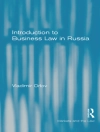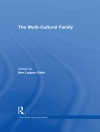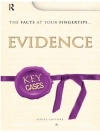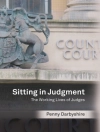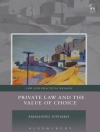Law’s regulatory reach has grown significantly over the past few decades. Yet, at the same time, law schools and legal professions in Western and Western-oriented jurisdictions have undergone an acute crisis. How is this possible? In this insightful and wide-ranging book, Luca Siliquini-Cinelli argues that these trends are in fact complementary manifestations of a single phenomenon—namely, that law is and will always be more capable of regulating social interaction without the experiential contribution of legal experts.
Siliquini-Cinelli contends that the separation of law’s regulatory function from legal experts is structurally linked to the former’s nature and operational dynamics as an intellectual artifact to be used for ordering purposes. As a product of the intellect, law is a matter of knowledge, not experience. In fact, Siliquini-Cinelli holds, law’s artifactuality voids experience, including that of legal experts, making it redundant. This explains how law can thrive as a regulatory phenomenon while the very places where future legal professionals are formed and those places where it is practised are in crisis.
To show this, Siliquini-Cinelli embarks upon a historical, philosophical, and comparative analysis of law’s artifactuality, focusing on the teaching, study and practise of law as intellectual endeavours, from the advent of juristic activities in the Late Roman Republic to current legal pedagogies, practices, and reforms in Civil and Common law jurisdictions. In so doing, Siliquini-Cinelli employs the Latin phrase ‘scientia iuris’ to explain why and how legal education and practice pursue knowledge at the expense of experience, and the serious implications this has for lawyering activities.
Moving beyond established narratives, Siliquini-Cinelli argues that ‘scientia iuris’ ought not be reduced to dogmatic analysis (scientia iuris as doctrina iuris). Rather, ‘scientia iuris’ denotes the knowledge of the law sought by all those who teach, study, and practise it, and which is actualised through a form of legal thinking and argumentation that moves along reason’s metaphysical, constructivist lines (scientia iuris as cognitio iuris). Thus, scientia iuris is not the prerogative of a few legal scholars; rather, it lies at the very core of Western legal education and practice, broadly understood.
The relevance of Siliquini-Cinelli’s original and interdisciplinary analysis is profound and far-reaching: the crisis that legal education and practice are undergoing is not an isolated, or accidental, event; it is a consequence of the very ways in which law has been taught, studied, and practised since Rome.
Endorsements
‘This richly researched book on the history of scientia iuris is a work on epistemology which argues that the legal model is highly problematic and will eventually be able to function without the intervention of jurists and lawyers. Such a thesis is based upon a very detailed knowledge both of philosophy and of the legal primary and secondary sources from Roman to modern times. The author is at home with Ancient Greek, Latin, French, German and Italian texts and this means that the research basis for the thesis not only is unusually profound – encompassing both the civil and the common law – but will make a major contribution to historical jurisprudence, to comparative legal history, to comparative law in general and to legal theory. This is legal scholarship of the highest order.’
Geoffrey Samuel, Emeritus Professor of Law, Kent Law School
‘In this exceptionally robust and expertly-researched new book, Luca Siliquini-Cinelli presents a provocative thesis. He proposes that the experience of legal experts is redundant when it comes to the success of law as a regulatory framework. Oscillating between historical, material, philosophical and literary frames, Siliquini-Cinelli introduces what he terms ‘law’s artifactuality’. Law’s artifactuality as an intellectual phenomenon of social ordering is established through a comparative excavation of legal pedagogy and practice stretching from the Late Roman Republic to contemporary contexts to expose law as a product of the intellect. Law is therefore a matter of knowledge, not experience. Siliquini-Cinelli makes a sophisticated philosophical case for scientia iuris as a special form of knowledge that exists distinct from experience. This is at the core of the book in claiming that the current detachment of law from legal experts is a symptom of law’s essential and enduring artifactuality. This detachment is therefore incubated and internal to law’s essential nature rather than a consequence of the prophetic shadow of AI. This book is a vital and timely intervention in the current crisis gripping legal education and legal practice and their future relation with AI. The book is a stellar example of the profound importance of historical and philosophical thinking in law as a means to understanding contemporary phenomena in law. Siliquini-Cinelli executes his analysis masterfully and brings fundamental insights to the debate on knowledge and experience in law.’
Kimberley Brayson, Professor of Critical Jurisprudence, Leicester Law School
‘This book is not for the faint-hearted or the narrow-minded. It is not for the narrow-minded as it paints on the broadest of canvasses, from the Late Roman Republic to the Middle Ages to the Methodological Legal Positivism that characterises modernity. It is not for the faint-hearted as it makes the bold claim that law does not need lawyers. The reason law does not need lawyers is that law is based on knowledge, not experience. If Luca Siliquini-Cinelli is right, then Oliver Wendell Holmes is wrong. The stakes couldnot be higher.’
Joshua Neoh, Associate Professor of Law, ANU College of Law
‘[An] important book … [it] represents a significant contribution to legal philosophy and historical jurisprudence. Its strengths are found in its philosophical analysis, its link-age of historical and contemporary issues, and its challenge to conventional legal thought. This work is particularly pertinent for those interested in the future of legal education and the influence of AI on law and legal reasoning’
Michael Palmer, Professor, SOAS and Institute of Advanced Legal Studies, University of London; Cheng Yu Tung Visiting Professor of Law, University of Hong Kong; Hong Kong Institute of Asia-Pacific Studies, Chinese University of Hong Kong; Amicus Curiae - The Journal of the Society for Advanced Legal Studies, Book Symposium on Scientia Iuris
‘[A] landmark book.’
Robert Herian, Associate Professor of Law, Exeter Law School; Amicus Curiae - The Journal of the Society for Advanced Legal Studies, Book Symposium on Scientia Iuris
表中的内容
Chapter One – Introduction.- Chapter Two – Knowledge
vs Experience.- Chapter Three – The Late Roman Republic: The Inception of Metaphysical Abstractness.- Chapter Four – The Middle Ages: The Systematic Renovation of Scientia Iuris .- Chapter Five – Methodological Legal Positivism.- Chapter six – The Common Law Tradition.- Chapter Seven – Conclusion.
关于作者
Luca Siliquini-Cinelli is Reader in Law at the School of Law and Politics, Cardiff University.


